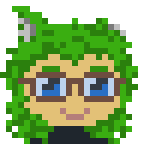If you spend long enough in the world of software you're going to come across some variant of this saying.
Programming is not the act of telling the computer what to do, it's the act of telling somebody else what you would like the computer to do.
I've heard this quote attributed to Donald Knuth, but found no verification of this from some internet searching. It's probably something somebody non-famous said one day to a friend and it caught on.
This saying has many virtues. For one, it encourages writing code that is well-documented and maintainable. It also promotes a viewpoint of programming as beneficial to the entire human race and not just the individual. It brings attention to the fact that programmers are, as are all humans, social creatures whose intelligence is supported and augmented by those around them. It promotes open source software by making proprietary or secret code look fundamentally silly.
A virtue this saying does not have is truth. In fact, programming is the act of telling a computer what to do. This point is hard to argue for because it's so fundamental; it's true by definition. In the same way, painting is not the act of telling others how to apply paint to canvas, it's the act of applying paint to canvas yourself. If all experts were teachers, no masterpieces would be painted and no computers would be programmed.
Now, there's no reason this communication must be directly from a human to a computer. If you create a computer program and give it to somebody else to run on a computer, you are still programming. Similarly, if a master calligrapher guides the hand of a student, the resulting strokes are the work of the master and not the student.
This brings us to an interesting corner case. Ada Lovelace is generally considered to be the first Computer Programmer, even though she could never run her Analytical Engine programs on a real computer, because one was never constructed. Was what she did programming, even though a computer was never told what to do? One could say that as long as the intent was for the programs to be run on a computer, it could be considered programming. One could also say that her programs actually were run on a real computer, as she surely had a model of the Analytical Engine in her head and could evaluate the programs in her mind.
Wait, if the human mind is considered to be a computer, then how about people who write instructional books, invent recipes, preach religions, or shout military orders—could they also be called computer programmers?
The correct answer is "kinda sorta". For us who program discrete mathematical systems as a pastime, it's easy to forget that many concepts in language and thought are not clear-cut and precise like a computer program. Programming is one of those concepts that's defined by its center rather than its boundaries.
 LW
LW